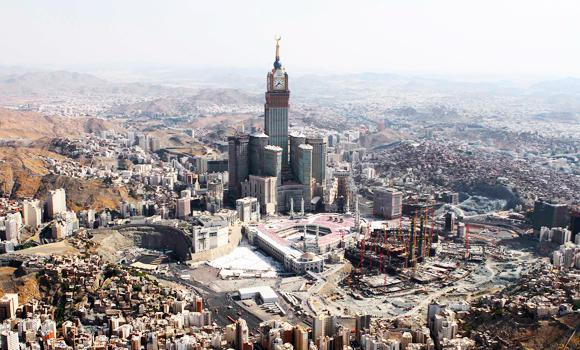
Makkah, Jul 10: Three floors of the newly constructed annex of the Grand Mosque have been opened to accommodate 400,000 more worshippers this Ramadan.
The opening comes upon directives of Custodian of the Two Holy Mosques King Abdullah, who initiated the new expansion project to increase the mosque’s capacity to more than two million.
Apart from the basement, first and mezzanine floors, the mosque’s northern, southern and western plazas have also been opened for worshippers.
Finance Minister Ibrahim Al-Assaf said his ministry implemented the project upon the king’s directives to expand facilities for the millions of pilgrims who come from around the world for Umrah during the holy month.
The king has also ordered the opening of mataf expansion, including the special facility for people of special needs, for pilgrims.
Muhammad bin Nasser Al-Khozaim, deputy chief of the Presidency of the Two Holy Mosques Affairs, confirmed that all floors of the new King Abdullah Haram Expansion Project had been opened for worshippers.
“The entire annex has been provided with a central air-conditioning system and has been decorated with beautiful chandeliers,” he said.
There are telephones for visitors to make inquiries about matters related to Umrah or other religious issues.
Al-Khozaim said the new annex with its plazas would serve more than 1.5 million worshippers during the peak Haj and Umrah seasons.
Zamzam water taps have been installed in open plazas to supply cold water to visitors.
The new annex’s escalators have begun operating to facilitate movement of pilgrims and worshippers to upper floors.
Saudi nationals and expatriates have commended the king’s gesture.
“This is a great humanitarian gesture from King Abdullah, as he knows that more prayer facilities are required at the Grand Mosque during Ramadan to accommodate the millions of worshippers,” Hassan Al-Ahdal, secretary-general of the International Media Organization, told Arab News.
“The opening of the new annex and surrounding plazas will certainly help worshippers perform their prayers with greater comfort.”






Comments
Add new comment